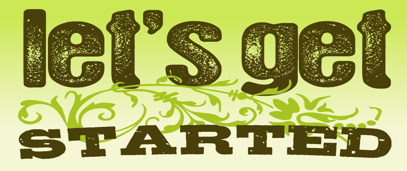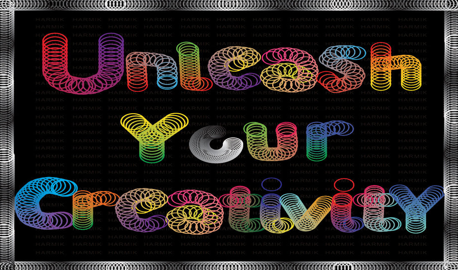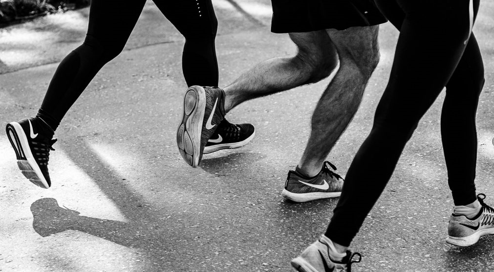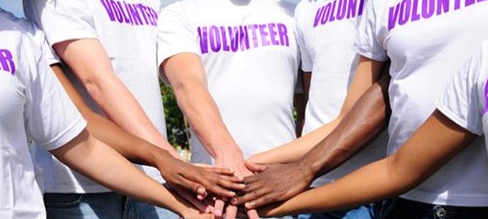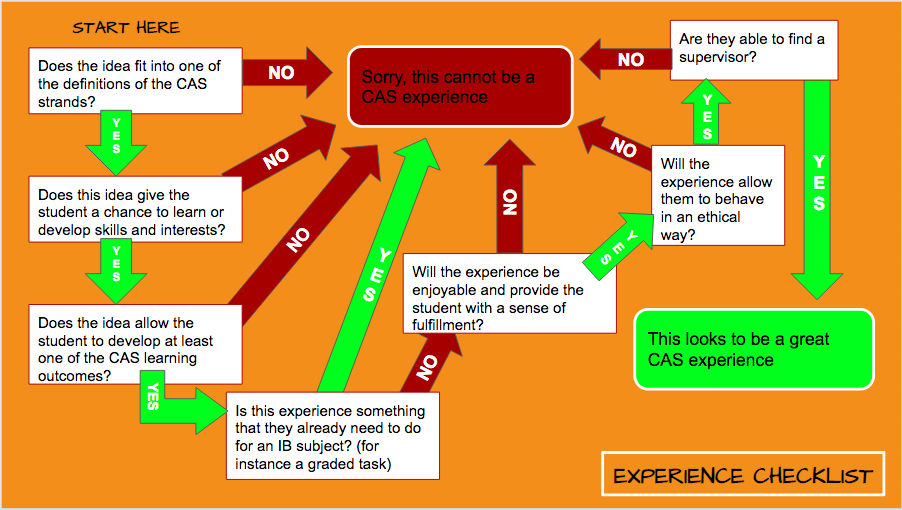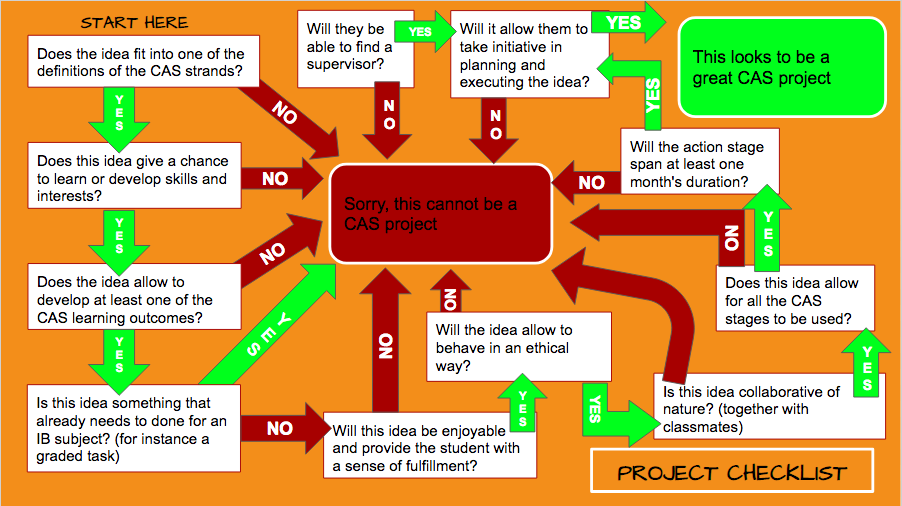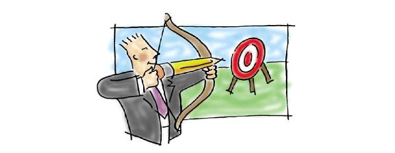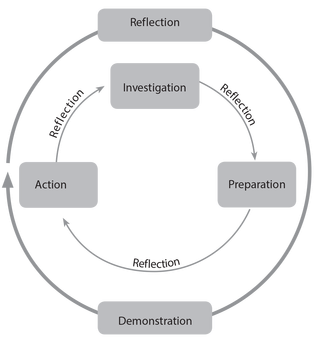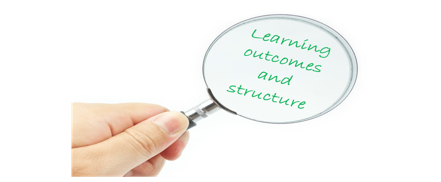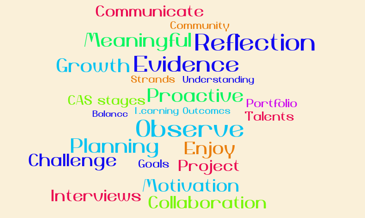Students
Let's get started
- How do I get started?
In order to get started with your CAS Programme, you will have to set your personal aims and goals. On your CAS Portfolio you will be asked to write about your aims and goals, reflecting your passions and what you want to achieve through the CAS Programme.
Example of an aims and goals paragraph:
The following questions are an example that can help you to set your personal goals:
- What are global issues that you feel strongly about?
- How do you see these global issues back in your own community, how does it impact us in a local context?
- What difference would you like to make?
- What difference could you make?
- What are things that you could do associated with this global issue on a local level?
- How do the things that you have suggested, reflect some of your hobbies, talents, things that you like to do?
- How could the things you suggest become CAS, in which strands could they fit?
Remember that in 2015, world leaders gathered at the UN to adopt 17 sustainable Development Goals to achieve several extraordinary things by 2030: end poverty, promote prosperity and well-being for all, and protect the planet.
- Plan your Experiences/Projects
Try to think of things that you can do that enable you to use your talents, to challenge yourself and being enjoyable too. Combine these with the goal you have selected. We do not expect from you to solve the problem, but we expect to see your contribution to the achievement of the goal. You can use the CAS Project Form document to make an overview of yourself on when you plan to get started with these experiences. This document will also help you to organize your steps before to start with the CAS experience.
- How to record my CAS experiences and my projects in my Portfolio?
Step 1
Find your portfolio page on Geitonas School Site.
Click on the SharePoint and then click at the top of the page the ‘IB DP’.
On the left-hand side of your page click on the button ‘CAS’.
Step 2
Click on the folder of your Class Year, for example: ‘Class of 2024’.
Click on the ‘Individual Folder’.
Click on your individual folder.
Step 3
In your individual folder you will see four folders: The ‘Interview ‘folder, the ‘Experience’ folder, the ‘Evidence’ folder and the ‘Personal Profile’ project. Click on the ‘Experience’ folder and write about your CAS Experience.
What is CAS
CAS is organized around the three strands of creativity, activity and service defined as follows:
- Creativity: Exploring and extending ideas leading to an original or interpretive product or performance.
- Activity: Physical exertion contribution to a healthy lifestyle.
- Service: Collaborative and reciprocal engagement with the community in response to an authentic need.
You develop skills, attitudes through a variety of individual and group experiences, involving one or more of the three strands. CAS provide opportunities to explore your interests, passions, personality, and perspectives. A CAS experience can be a single event or maybe extended series of events.
Successful completion of CAS is a requirement for the awarded of the IB Diploma. While not formally assessed, students record their CAS experiences, providing evidence in their CAS portfolios, showing achievement of the seven Learning Outcomes. The CAS Programme begins at the start of the Diploma Programme and continues on a weekly basis, for at least 18 months.
Further, you will undertake a CAS Project of at least two month’s duration that will challenge you to show initiative, demonstrate perseverance, developing skills such as collaboration, problem-solving and decision-making. The CAS Project can address any strand of CAS or combine all three strands.
Reflection is central for every CAS Experience, exploring your ideas, skills, limitations, and areas for further development.
CAS Strands
Creativity: ‘Exploring and extending ideas leading to an original or interpretive product or performance’
Creativity could be anything that involve arts, for example, music, painting, acting, dancing, creating your own app, writing poetry or in a newsletter. It is a great opportunity to unfold your talent by doing something that you have always wanted to do. If you do ‘Creativity’, you will have to present your work.
Action: ‘Physical exertion contributing to a healthy lifestyle’
Action: ‘Physical exertion contributing to a healthy lifestyle’
The aim of the ‘Activity’ strand is to encourage you to adapt healthy habits related to physical well-being. You might take up a team or individual sport, take up yoga or fitness training. It is time to expand your personal goals, explore different training models to enhance your existing sport or become involved in a new sport.
Service: ‘Collaborative and reciprocal engagement with the community in response to an authentic need’
Service: ‘Collaborative and reciprocal engagement with the community in response to an authentic need’
‘Service’ means to make a meaningful contribution to your community and society without profit. Through service, you will develop your personal and social skills, as is one of the most transforming elements of CAS. Now is the time to make the world a better place. Remember to ensure that your action has a positive impact on others.
Process Experience/Project
Throughout your CAS Programme you are expected to undertake a variety of CAS experiences and one of these has to be a project.
Step 1: Find a good idea
In the beginning you have selected your goal and you have thought of the aims that will be achieved. Now, it is time to come up with ideas of experiences/project you might want to do. If you are not sure whether your ideas could actually count for CAS, have a look at the following checklist. Do not forget that you can always discuss your ideas with your CAS advisor/coordinator as to make sure that your ideas fulfil the requirements.
Process Experience/Project
Throughout your CAS Programme you are expected to undertake a variety of CAS experiences and one of these has to be a project.
Step 1: Find a good idea
In the beginning you have selected your goal and you have thought of the aims that will be achieved. Now, it is time to come up with ideas of experiences/project you might want to do. If you are not sure whether your ideas could actually count for CAS, have a look at the following checklist. Do not forget that you can always discuss your ideas with your CAS advisor/coordinator as to make sure that your ideas fulfil the requirements.
Step 2: Writing a proposal
After having checked your idea whether it fulfils the requirements, it is time to write your proposal and notify your advisor by giving your proposal. You can start with your experience/project when you get the approval from your advisor or your coordinator.
Keep in your mind that your proposal might get rejected. This means, that your idea does not fulfil all the requirements. Your advisor will explain you on what needs to be improved in order to get the proposal approved. After you have done all the changes, you have to inform your advisor that you have done all the necessary changes according to the comments so to be checked again.
In order to complete the proposal, you will need to have understood the CAS Strands, CAS Stages and the Learning Outcomes.
Step 3: Upload the Project Form (The Proposal)
After your proposal has been approved, you will need to upload the Project Form to your Individual Folder- Experience Folder.
Step 4: Start your Experience/Project
Now, it is time to start with your CAS experience/project. This means that you will start going through the CAS Stages as you had them planned in the proposal.
Step 5: Reflection and Evidence
During your experience/project you will need to upload reflection and evidence of what you are doing. Evidence can be: photos, videos, screenshots, document, audio clips. It is of the utmost importance to reflect on what you are doing.
Uploading your evidence
When uploading Photos: Give each photo a caption where you have to write the date you are uploading the photo and a short description of what we can see in the photo.
When writing your Reflection: You will have to include into your reflection your evaluation of your achievement of the Learning Outcomes and the goal you have stated in your proposal. Write a paragraph with a small description of your experience/project, which of the Learning Outcomes have been achieved and express your feelings.
Step 6: Advisor Review
CAS Aims
After having checked your idea whether it fulfils the requirements, it is time to write your proposal and notify your advisor by giving your proposal. You can start with your experience/project when you get the approval from your advisor or your coordinator.
Keep in your mind that your proposal might get rejected. This means, that your idea does not fulfil all the requirements. Your advisor will explain you on what needs to be improved in order to get the proposal approved. After you have done all the changes, you have to inform your advisor that you have done all the necessary changes according to the comments so to be checked again.
In order to complete the proposal, you will need to have understood the CAS Strands, CAS Stages and the Learning Outcomes.
Step 3: Upload the Project Form (The Proposal)
After your proposal has been approved, you will need to upload the Project Form to your Individual Folder- Experience Folder.
Step 4: Start your Experience/Project
Now, it is time to start with your CAS experience/project. This means that you will start going through the CAS Stages as you had them planned in the proposal.
Step 5: Reflection and Evidence
During your experience/project you will need to upload reflection and evidence of what you are doing. Evidence can be: photos, videos, screenshots, document, audio clips. It is of the utmost importance to reflect on what you are doing.
Uploading your evidence
- Go to your CAS Portfolio and click on the ‘Individual Folder’.
- Find your Individual Folder and click on it.
- Click on the ‘Evidence Folder’.
- Upload your written reflection with your evidence.
When uploading Photos: Give each photo a caption where you have to write the date you are uploading the photo and a short description of what we can see in the photo.
When writing your Reflection: You will have to include into your reflection your evaluation of your achievement of the Learning Outcomes and the goal you have stated in your proposal. Write a paragraph with a small description of your experience/project, which of the Learning Outcomes have been achieved and express your feelings.
Step 6: Advisor Review
- Your advisor needs to complete a review for you, every time you complete a CAS experience/project.
- The review needs to be completed within three weeks after you have ended your experience.
CAS Aims
The CAS Programme aims to develop students who:
CAS Stages
The CAS Stages represent a process that will help you to plan a CAS experience and furthermore a CAS project. By applying these stages to CAS, you will have a structure that you can apply to future situation with confidence.
- Enjoy and find significance in a range of CAS experiences
- Purposefully reflect upon their significance
- Identify goals, develop strategies, and determine further actions foe personal growth
- Explore new possibilities, embrace new challenges, and adapt to new roles
- Actively participate in planned, sustained, and collaborative projects
- Understand they are members of local and global communities with responsibilities towards each other and the environment.
CAS Stages
The CAS Stages represent a process that will help you to plan a CAS experience and furthermore a CAS project. By applying these stages to CAS, you will have a structure that you can apply to future situation with confidence.
Investigation: Beginning with investigation is advised in order to identify your interest, skills, and talents, as well as areas for personal growth and development. Investigate what you want to do and determine the purpose for your experience. In case of service, you need to identify a need that you want to address.
Preparation: After investigation, you need to clarify roles, responsibilities, developing a plan of action to be taken. You have to identify specified resources, follow timelines and if necessary, acquire skills need to engage in the experience.
Action: Now, it is time to implement your idea or plan. You may work individually, with partners or in group.
Reflection: After each experience or project, you will reflect, describing what happened. In your reflection you should describe the process of the experience/project, express feelings, generate ideas and raise questions. Of the outmost important is to evaluate your development by making connections between your accomplishments and the learning outcomes. Reflection may lead to new action.
Demonstration: You will demonstrate your engagement in CAS in your CAS portfolio. Keep in your mind that each time you finish something, you will upload it on your portfolio to show the completion of your experience/project. Demonstration needs to be in a regular basis. You can also share what you have accomplished through our CAS blog. You need to be ready to discuss the process of your work during the meetings with your advisor/coordinator and during the official interviews.
Learning Outcomes
Preparation: After investigation, you need to clarify roles, responsibilities, developing a plan of action to be taken. You have to identify specified resources, follow timelines and if necessary, acquire skills need to engage in the experience.
Action: Now, it is time to implement your idea or plan. You may work individually, with partners or in group.
Reflection: After each experience or project, you will reflect, describing what happened. In your reflection you should describe the process of the experience/project, express feelings, generate ideas and raise questions. Of the outmost important is to evaluate your development by making connections between your accomplishments and the learning outcomes. Reflection may lead to new action.
Demonstration: You will demonstrate your engagement in CAS in your CAS portfolio. Keep in your mind that each time you finish something, you will upload it on your portfolio to show the completion of your experience/project. Demonstration needs to be in a regular basis. You can also share what you have accomplished through our CAS blog. You need to be ready to discuss the process of your work during the meetings with your advisor/coordinator and during the official interviews.
Learning Outcomes
Your completion of CAS is based on the achievement of the seven learning outcomes. Some of these may be achieved many times, while others may be achieved less frequently. You are required to present evidence, demonstrating achievement of all seven outcomes. The evidence will come from your reflection on your CAS experience/project. During these 18 months and until the end of DP 2 you should have achieved all CAS learning outcomes. First, you need to gain stronger understanding of CAS learning outcomes through the use of descriptors.
Learning Outcome 1: Identify own strengths and develop areas of growth
Descriptors:
Learning Outcome 2: Demonstrate that challenges have been undertaken, developing new skills in the process
Descriptors:
Learning Outcome 3: Demonstrate how to initiate and plan a CAS experience
Descriptors:
Learning Outcome 4: Show commitment and perseverance in CAS experiences
Descriptors:
Learning Outcome 5: Demonstrate the skills and recognize the benefits of working collaboratively
Descriptors:
Learning Outcome 6: Demonstrate engagement with issues of global significance
Descriptors:
Learning Outcome 7: Recognize and consider the ethics of choices and actions
Descriptors:
Reflection & Evidence
Learning Outcome 1: Identify own strengths and develop areas of growth
Descriptors:
- You are aware of your own strengths and weaknesses
- You are open to improvement and growth opportunities
- You are able to propose activities according to own interest and talents
- You are willing to participate in different activities
- You are able to undertake a thoughtful self-evaluation
- You are able to see yourself as individual with various abilities and skills, some more developed than others.
Learning Outcome 2: Demonstrate that challenges have been undertaken, developing new skills in the process
Descriptors:
- You participate in an experience that demands an appropriate personal challenge; this could be with new or familiar experiences
- You are willing to become involved in unfamiliar environments and situations
- You acquire new skills and abilities
- You increase expertise in an established area
- You show newly acquired or developed skills or increased expertise in an established area.
Learning Outcome 3: Demonstrate how to initiate and plan a CAS experience
Descriptors:
- You are able to articulate the CAS stages, moving from conceiving an idea to carrying out a plan for CAS experience or series of CAS experiences
- You demonstrate knowledge and awareness by building on a previous CAS experience
- You show initiative by launching a new idea or process
- You suggest creative ideas, proposals, or solutions
- You integrate reflective thoughts in planning or taking initiative
- You are aware of roles and responsibilities when designing an individual or collective CAS experience shows responsible attitude to CAS project planning
- You are able to develop a coherent plan taking into account the aim or purpose, activities and resources.
Learning Outcome 4: Show commitment and perseverance in CAS experiences
Descriptors:
- You demonstrate regular involvement and active engagement with CAS experiences and CAS project
- You are able to foresee potential challenges to the initial plan and consider valid alternatives and contingencies
- You demonstrate adaptability to uncertainties and changes
- You get involved in long-term CAS experiences and CAS project.
Learning Outcome 5: Demonstrate the skills and recognize the benefits of working collaboratively
Descriptors:
- You share skills and knowledge
- You listen respectfully to proposals from peers
- You are willing to take on different points of view and ideas
- You show respect for different points of view and ideas
- You make valuable contributions
- You are responsible for participating in the group
- You readily assist others
- You are able to identify, demonstrate and discuss critically the benefits and challenges of collaboration gained through CAS experiences.
Learning Outcome 6: Demonstrate engagement with issues of global significance
Descriptors:
- You recognize the global implications of local issues
- You are able to identify global issues in the local or national community
- You show awareness of issues of global importance and take concrete and appropriate actions in response to them either locally, nationally, or internationally
- You get involved in CAS projects addressing global issues in a local, national, or international context
- You develop awareness and responsibility towards a shared humanity.
Learning Outcome 7: Recognize and consider the ethics of choices and actions
Descriptors:
- You recognize ethical issues
- You are able to explain the social influences on one’s ethical identity
- You take into account cultural context when making a plan or ethical decision
- You identify what is needed to know in order to make an ethical decision
- You articulate ethical principles and approaches to ethical decisions
- You show accountability for choices and actions
- You are aware of the consequences of choices and actions regarding self, others involved and the community
- You integrate the process of reflection when facing an ethical decision
- You show awareness of the potential and varied consequences of choices and actions in planning and carrying out CAS experiences.
Reflection & Evidence
Being reflective is one attribute of the IB learner profile: ‘We thoughtfully consider the world and our own ideas and experience. We work to understand our strengths and weaknesses on order to support our learning and personal development.’
Reflection
You need to reflect on everything you do throughout your experience/project. Reflection should be meaningful and in depth. The emphasis must be given to quality rather than quantity. For that reason, is up to you to determine key moments during CAS experiences/projects that inspire reflection. Reflection can be done in different ways, for example, written journals, audio/video recordings, poem, essay and so on.
Evidence
During these 18 months you will need to record evidence in your portfolio. This evidence should demonstrate your regular involvement in the experience/project. Evidence could include, but is not limited to photos, videos, documents, certificate.
Reflection
You need to reflect on everything you do throughout your experience/project. Reflection should be meaningful and in depth. The emphasis must be given to quality rather than quantity. For that reason, is up to you to determine key moments during CAS experiences/projects that inspire reflection. Reflection can be done in different ways, for example, written journals, audio/video recordings, poem, essay and so on.
Evidence
During these 18 months you will need to record evidence in your portfolio. This evidence should demonstrate your regular involvement in the experience/project. Evidence could include, but is not limited to photos, videos, documents, certificate.

